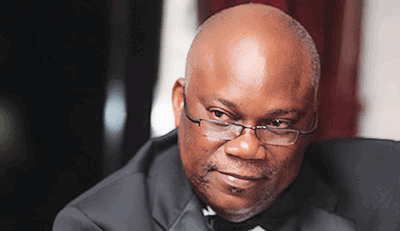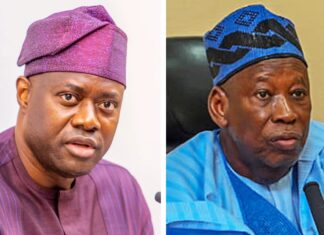The EU and UNIDO joint efforts to enhance Nigeria’s industrial quality standards is a practical step in helping Nigeria’s march towards industrial standardisation, writes Correspondent, SAM NWOKORO.

Day in, day out, Nigeria’s business environment is filled with complaints about poor standard of goods and services, which Nigerian consumers are forced to settle with.
In every consumers are randomly and mercilessly duped. The marketplace is abuzz with consumer complaints, with little redress.
In a fast-thriving economy of about 6.9 per cent Gross Domestic Product (GDP) growth with active products and services consumers in a population of about 170 million people, out of which about 67 million are actively engaged, the essence of quality products and services can hardly be emphasised.
Meeting up with international best practice and industrial standards in regard to industrial processes, systems and products has for the past six or seven years been a major gospel of Nigeria’s economic managers who are worried that Nigeria’s below average rating profile in quality service delivery and as dumping ground for all manner of poor quality products (both locally-made and imported) is capable of undermining investor confidence, aside constituting health risks.
For a country that battled and tamed series of troubling bouts of epidemics, contracted locally and ‘imported’, any assistance in the direction of funding industrial quality enforcement is worth it.
The EU-UNIDO intervention
According to news reports, the federal government, through the Federal Ministry of Trade and Investments, with the support of the European Union (EU) and United Nations International Development Organisation (UNIDO) have earmarked N2.65 billion for the establishment of a National Quality Infrastructure Project (NQIP) in Nigeria.
These two Nigeria’s global partners in development are supporting the Nigerian government to establish a National Accreditation Board (NAB). The board will be empowered to issue certificates of conformity verifying that management systems, product manufacturers, service providers and personnel have complied with global best practice for quality. This conformity guarantees that the products and services are good for use and continued safety of buyers, users and consumers, according to a top UNIDO official, Michel Arion, who was present at the NAB inauguration last week.
The accreditation steering committee was inaugurated recently in the presence of Nigeria’s Minister of Trade and Investment, Olusegun Aganga; EU Ambassador to Nigeria and Economic Community of West African States (ECOWAS), Arion; and UNIDO representative to Nigeria and West Africa, Patrick Kormaru. The committee comprised 23 members drawn from the public and private sectors as well as key consumer associations.
“Once the accreditation body issues its certificate for a product, a process or system in Nigeria, the product will be accepted in other countries around the world. And for exporters, the risk of product rejection by international trade partners is minimised,” Aganga told stakeholders.
“NQIP complements the government of Nigeria’s transformation agenda, especially Nigeria’s Industrial Revolution Plan (NIRP), which will transform Nigeria to an industrial country by 2020.”
The EU-UNIDO initiative complements the efforts of existing regulatory bodies which had variously been accused of all sorts of inadequacies. Some of the allegations against such existing regulatory and enforcement bodies include and not limited to favouritism, unprofessional personnel, tribalism, sharp practices and inducements to circumvent rules, to the detriment of strict enforcement and consumer safety.
The bodies fingered include Standards Organisation of Nigeria (SON), National Agency for Food and Drug Administration and Control (NAFDAC), Council of Registered Engineers (COREN), Nigerian Institute of Quantity Surveyors (NIOQS), and Institute of Chartered Accountants of Nigeria (ICAN).
According to a Lagos-based automobile spare parts trader, who preferred anonymity, “Nigeria deserves a global standard enforcement body like the NAB. Existing ones apply too much of parochial considerations in executing their jobs; all the time, they raid markets and confiscate items we struggled to bring into the country and throw them away, whereas we have cleared them from the borders to the Customs point. Why not stop these items at the point of entry? And those of us in the auto sector suffer this so much. What happens to pre-destination inspection we used to hear? These rubbish by these so-called standard enforcement agencies must stop.”
Joseph Mojekwu, another businessman who used to have a water plant, toed the same line.
“Nigeria deserves to have a universal standard; after all she has opened her economy to the outside world, and so she has to conduct all her transactions according to international standard, not local standard.
“The local manufacturers would supply to us, and after that, the so-called NAFDAC or SON would come and be disturbing our business, whereas they know where the machine parts were manufactured.”
A drug dealer with Greenfield Pharmaceuticals, who did not want his name in print, said: “The EU-UNIDO partnership with Nigeria on international standard is a good omen. Such a body should serve as an appeal body or adjudicator on industrial standard and service quality. Or, if possible, expunge existing standard enforcement bodies in all the sectors because by the very nature of our system, they can never adjudicate or enforce standard without biases.
“Okay, look at the microfinance banks, for example; whereas government incentivised them in order to offer micro credit to small businesses, they don’t help government in that direction. When you come to ask for a loan of say N100,000, they demand an interest of about 35 per cent or some even 40 per cent and then give you a period of about two months. What kind of business can you organise, execute and begin to make profit within three months. That is why such body is good. Their standard should supplant other standards.”
Troubled standards environment
There is no doubt that a deluge of consumer complaints in the Nigerian business environment is becoming embarrassing. The banks are either taking more Commission on Transaction (COT) than the Central Bank of Nigeria (CBN) prescribed or still do forex round-tripping with high collusion under one guise or another. Cement manufacturers claim disputable quality grades, substantiable or unsubstantiable, as well as differential process systems that poorly depict the kind of product they push into the markets.
SON has been in existence for over 40 years, yet all these onslaught on consumer wellbeing assail. The Nigeria Customs Service (NCS) seems to be involved in double standards – reportedly impounding goods it had earlier cleared at the borders. NAFDAC is said not to be helping matters either.
Buildings collapse everywhere, everyday on account of poor quality steel or sand-cement ratio, at times killing innocent people in hundreds and thousands, embarrassing the nation and her fledging market economy, whereas there are countless regulatory bodies owned by the state and the professions.
Currently, the government agency called the Consumer Protection Council (CPC) is visible only at trade fairs and exhibitions than in the actual work of affording cheated consumers justice. The council is currently embroiled in legal tango with multinational beverage company, Coca Cola, on charges of breaching product quality rules. It is taken for granted by Nigerians that the council may only be playing to the gallery and that if at all it has the teeth to bite, it may find it hard to bite. All these make the EU-UNIDO standard accreditation project with Nigeria all the more salutary.
Deepening commerce
In international diplomacy, economic zones more readily respond to the happenings in the economy and business environment where they have more stake. Britain chiefly and EU countries see Africa as an economic zone that has grown over the years and is still growing. Economic reforms in Nigeria and some parts of Africa have in the past decade made it imperative for EU to see African economies, just like America, as the next investment and business haven after the current BRIC (Brazil, Russia, India, China) countries.
The EU-EPA (European Partnership Agreement), a trade/tariff negotiations between the two blocs, is still on-going, and issues of product and industrial standards continue to dodge negotiations and ratification of sundry resolutions put forward to cement the deal. Perhaps, the EU-UNIDO efforts to partner Nigeria in formulating an enduring and acceptable international standard module is geared towards smoothening effective and crisis-free trade relations at official and private levels between Nigeria and EU countries.
Meeting MDG mandate
One of the demands on nations by the United Nations (UN) is for member states to conduct businesses in line with global standards to mitigate the spread of disease vectors arising from consumption of poor quality industrial goods and services. The UN expects that member nations would have achieved reasonable mileage in executing poverty remedial economic policies to, at least, halve the plague of absolute poverty by the end of 2015, while hoping for total eradication by 2030.
The Nigerian government has, in recent time, been breathing down the neck of individual and corporate bodies to do things according to international best practices. The UN mandates member nations to deepen partnership with global development agencies like EU and UNIDO to help them in pursuing the Millennium Development Goals (MDGs) targets.















